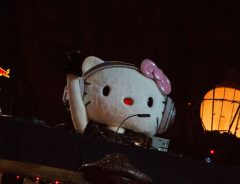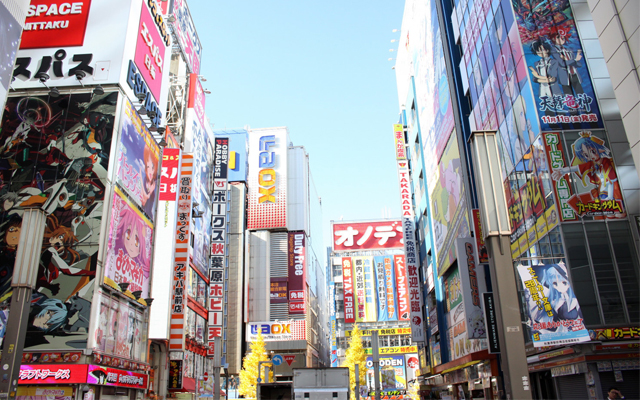- Tags:
- Age / Akihabara / Japan / Tokyo Girls' Update
Related Article
-

Boo from Mario turned into ghoulishly adorable mochi dumplings
-

DJ Hello Kitty Drops F-Bomb At Sanrio Puro Land Halloween Event To Delight Of Fans
-

Get a 2-for-1 eel meal deal at grilled eel rice bowl chain Meidai Unatoto opening in Akihabara
-

Photographer’s perfectly captured boat ride looks like passing through Spirited Away
-

Cat In Japan Expresses Extreme Dislike For Owner’s Curry, Breaks Their Heart
-

Japanese Fashion Brand Releases Lineup Inspired By “Being Dragged By A Horse”




There are unspoken rules in Akihabara. However, if someone were to break them, no one would come up to them to say anything. Instead, that someone would just be regarded as an “outsider” who doesn’t understand Akihabara culture. So you could say it isn’t anything to be too worried about. Besides, regardless of whether or not you’re aware of these unspoken rules, only a handful of people seem to infringe on them.
Akihabara plays a vital role as a kind of virtual reality. (See this article for more details.) By rejecting our normal lives and the real world and creating a new version of ourselves in Akihabara, we’ve constructed a special kind of virtual reality zone there. While online games are considered two-dimensional, you could say Akihabara is 2.5-dimensional- a place where reality and fiction intersect.
One of the things Akihabara locals hate most is being brought back into the real world. This doesn’t mean being physically pulled away from Akihabara, but to be reminded of reality while they’re in virtual reality there. Sometimes I see people asking residents of Akihabara their real names and ages. Usually this isn’t a big deal, but it pains me to see locals who have gotten used to hearing questions like these. You see, one of the area’s unspoken rules is not bringing reality into the virtual reality we call Akihabara.
For the majority of locals and those that make-up the moe industry, which includes maid cafes and idols, the age 17 has a special meaning. When strangers ask for someone’s age here, it’s not uncommon to hear locals respond by saying, “Seventeen.” In this case, the number 17 doesn’t refer to the real age. Rather, this number can extend far beyond that. So what exactly do people mean when they say they’re 17? I’d like to take some time to dig a little deeper into this prevalent “17-year-old disease”.
There’s a voice actress named Kikuko Inoue. You might know her as the voice behind Belldandy from the anime Oh! My Goddess/Ah! My Goddess. Born on September 25, 1964, she’s prominent 17-year-old. Before you tell me that my math is off, hear me out first. There’s a running joke where she always introduces herself by saying, “I’m Kikuko Inoue, and I’m 17 years old,” and someone will then respond, “Hey! Hey now!” Then, taking their cues from her, voice actresses who were eternally 17 years old began appearing one after another, like Yui Horie. From there, the “17-year-old belief”, or the belief that one is eternally 17 years old, was born. This term was even included in 2008 release of The Yearbook of The Contemporary Society published by the Free Citizens Company (Jiyuukokuminsha).
By why do these women insist that they are 17 years old?
Perhaps one simple explanation is that it’s a nod of respect toward Kikuko Inoue. Inoue is one of the country’s leading voice actresses, and has earned a tremendous following from her well-loved characters. Therefore, it doesn’t seem strange for someone to set their hypothetical age to 17 out of respect. However, it’s just as likely that this “17-year-old belief” has already left Inoue’s hands, and has rooted itself as a unique part of Akihabara culture.
When you line it up with the Japanese education system, the age of 17 is equivalent to the second or third year of high school (grade 11 or 12). It’s a period where you’re neither a child nor an adult. It’s also the only time that you really get to think deeply about your future. It probably wouldn’t be an exaggeration to say that it’s a kind of prep period for your future life.
While Akihabara locals may feel at home in virtual reality, they know that someday there will come a time when they leave it. While Akihabara may be a place of virtual reality, it’s only a temporary place of refuge. I wonder if the age of 17 doesn’t then refer to this preparation period before returning to the reality of society. Even while they enjoy being in virtual reality, Akihabara locals are preparing for the day when they return from it. When that time comes, they’ll quietly log out of Akihabara.
Yet a huge trap also exists. This is the reason I’ve referred to it as the “17-year-old disease”. Most locals break free from Akihabara, and generally go on to find their own happiness. However, some will come to live permanently in this virtual reality called Akihabara. Despite setting their own age, they are in fact steadily growing older with each passing year. It’s easy to imagine how people like this, who haven’t matured mentally past the age of 17, will be seen by ordinary people when they suddenly return to the real world.
The age of 17 in Akihabara is surely a saving grace for those who are oppressed in the real world. But just the same, it can also be an easy trap to fall into. While the age of 17 is part of the spirit of the virtual holy land Akihabara, it also takes the form of the “17-year-old disease” running rampant throughout it.